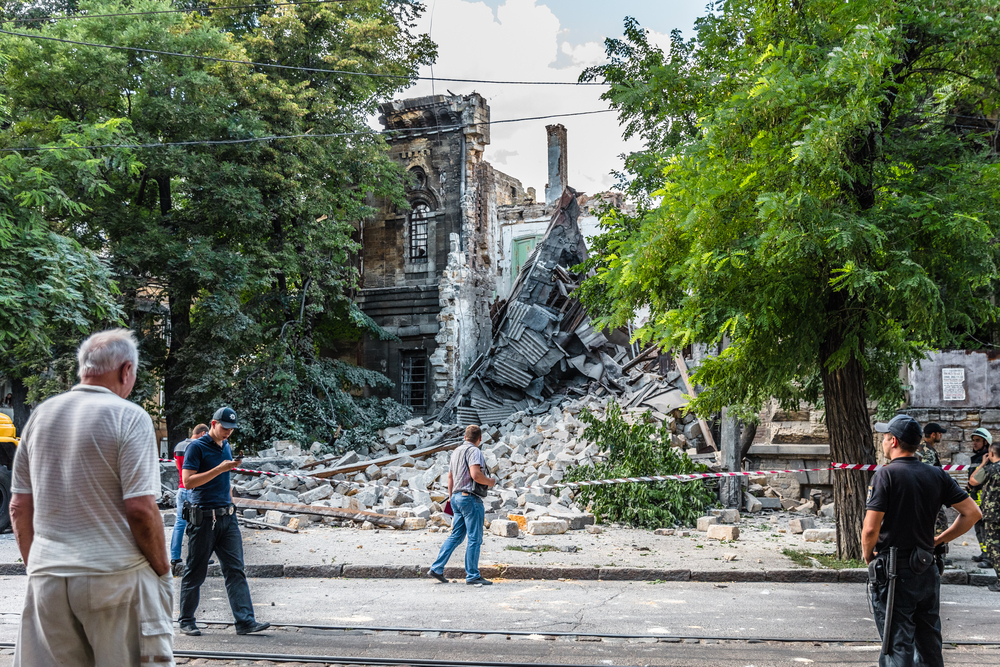As you know, I’m spending the holidays in my second home of South Africa. I dearly love this place, with all its faults. Every time I’m here, I’m reminded why I first came years ago: the newness, the sense of adventure, the excitement and promise of better things to come.
There are ongoing rumblings of change everywhere these days. The seaside village where my house is located has transformed itself in a decade from a rundown suburb to a vibrant hub of commerce and social life.
All of this has reawakened that feeling of anticipation I felt all those years ago when I first set foot in Africa. There’s a lesson for everyone, I think, in that feeling.
Tough Love
Countries like South Africa aren’t for the fainthearted. Even though the standards of life in many places are “first world,” inequality is extreme. One must be constantly vigilant against “redistributive” crime, which heightens one’s tension — at least until you become accustomed to it.
It also means everyday life is a constant, jarring contradiction between plenty and poverty. Raggedly poor folks are all around, going about their lives without bothering anyone with anything except the silent reminder of what their existence constitutes. Shortcuts through the city can take you into areas of grinding poverty and infrastructural inadequacy.
But above all, living in a highly unequal society — where the rule of law is often disregarded by those in high places — creates a dog-eat-dog attitude in some people. When people see a president getting away with obvious crimes, protected by his ruling party and by his carefully placed henchmen in the government, their incentive to play by the rules is reduced.
Why pay taxes when the big guys don’t? Why consider other people’s needs and feelings when high society seems not to extend to you that same courtesy?
The result, especially amongst people of certain age, is a brutal disregard for things we may take for granted.
For example, driving in the suburbs north of Pretoria where my wife’s family lives is a major ordeal. People think nothing of stopping in the middle of a lane of a busy thoroughfare to chat with someone on the sidewalk. Half the cars drive at half the speed limit and the other half drive at twice it, which makes passing a terrifying risk. People even pass at full speed on the shoulder. Cutting people off is nothing to them … it’s your problem, not theirs.
Of course, this sort of behavior isn’t universal, and it doesn’t occur in every unequal society. A lot depends on the extent to which traditional culture is a restraining influence. In India and Southeast Asia, for example, there is a great deal more patience and civility on the roads and other public spaces. Ancient codes of behavior, still strenuously enforced by elders, dictate respect for others and equanimity in the face of frustration. Belief in karma or samsāra helps.
In South Africa, those primordial social codes were ruthlessly stamped out during the apartheid era by a government that explicitly and vocally treated indigenous peoples as inferior. Many of the daily restraints that keep life livable were torn apart, with nothing to replace it but force. South Africa is now facing the challenge of building a new social morality from scratch.
Everything now depends on the behavior of those in a position to set an example, like businesspeople and politicians. In this respect, South Africa is hopefully poised to turn an important corner, as widespread anger at the behavior of President Jacob Zuma and his entourage encourages ordinary people — and their aspiring leaders — to mobilize around ethical behavior as the route to a better society.
Change Is the Only Constant
My point is this: Quality of life isn’t fixed in stone. Economically stressed and unequal societies are capable of more civility than rich and powerful ones. Damaged societies can reform themselves if they correctly identify the ways in which impunity undermines everyone’s well-being.
The question to ask about any given society is this: In which direction is it heading? Is it descending further into impunity and disregard for civil norms, or is it aware of the critical need to build those things? Is it based on rank selfishness and disregard for the welfare of others, or is it conscious of the ancient Roman idea that a bundle of sticks bound together is far stronger than each one individually?
I’ve visited enough countries in my time to believe firmly that this is a more important question than economic growth or the ups and downs of the market. Call me a romantic … old-fashioned.
All I know is that in my experience, it’s possible to live a full and happy life in a less wealthy society and to suffer miserably in a rich one. And it’s possible for those positions to reverse themselves before anyone realizes it’s happening.
My holiday wish for you is that this insight makes sense to you and goes in some small way to help navigate life in the coming years. After all, it’s true, as both the Bible and Mahābhārata say in identical terms, “as ye sow, so shall ye reap.”
Best wishes from me to you.
Ted Bauman
Editor, The Bauman Letter
